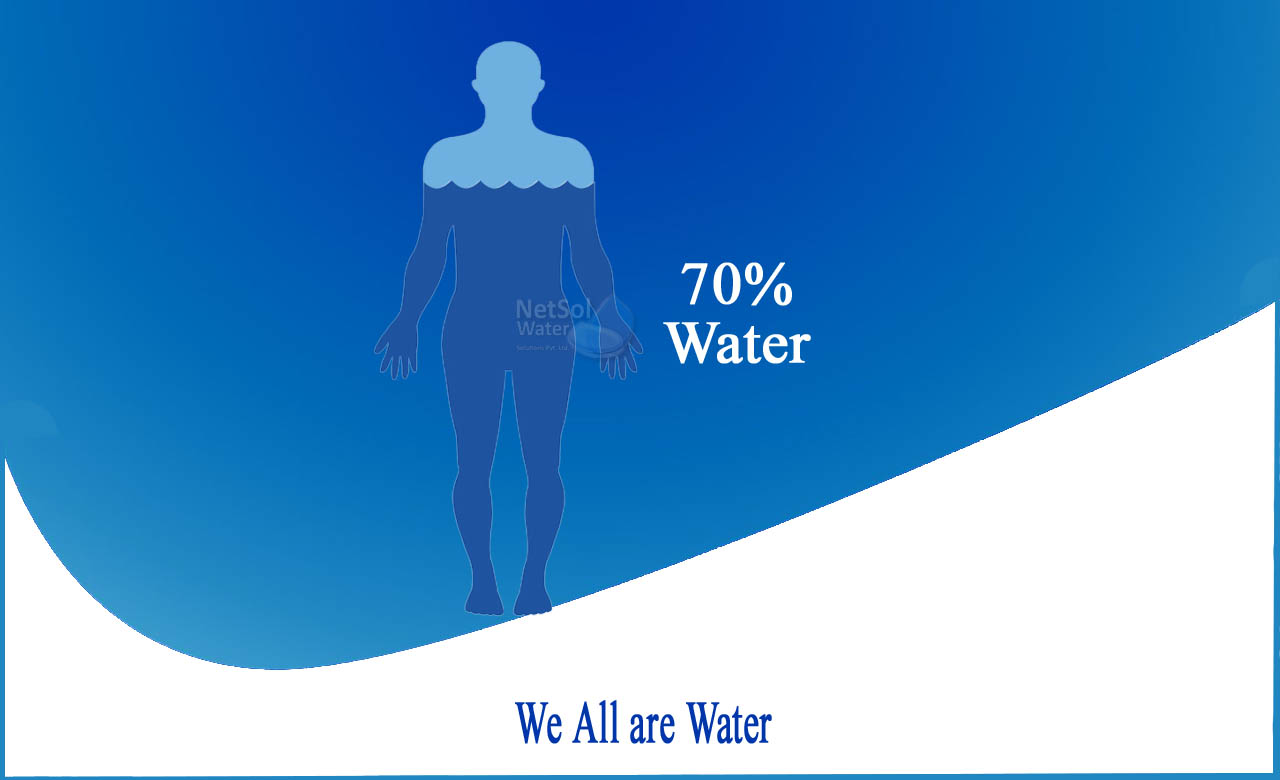Water is essential to all living things. In certain creatures, water accounts for up to 90% of their body weight. Humans require a specific amount of water to survive each day. Of course, this differs depending on one's age and gender, as well as where they live.
An adult male requires approximately 3 litres (3.2 quarts) of water per day, while an adult female requires approximately 2.2 litres (2.3 quarts) per day. Some of the water a person need is found in the food we eat, so it does not have to come from drinking liquids.
The percentage of water in the body fluctuates significantly based on factors including age and gender, but it normally falls between 45 and 75 percent. In comparison to fatty tissue, lean muscle contains more water. A female body typically has a lower percentage of water than a male body. This is owing to the fact that women have a higher fat proportion than men. People with a larger percentage of body fat are more likely to have a lower percentage of water in their bodies because of this water distribution.
With ageing, the percentage of water in the body changes. Water makes up a large portion of a baby's body, whereas older persons have less. The following tables give the average percentages and ranges of water in the body, according to sex and age:
|
Age 12–18 years |
Age 19–50 years |
Age 51 years and older |
|
|
Male |
Average: 59% |
Average: 59% |
Average: 56% |
|
Female |
Average: 56% |
Average: 50% |
Average: 47% |
The percentage of water in a person's body is affected by their size, shape, and muscle-fat balance.
Vital roles performed by water to keep us all alive:
-Every cell's life necessitates the presence of this essential vitamin, which first serves as a construction ingredient.
-Sweating and respiration help to control our internal body temperature.
-Water in the bloodstream metabolises and transports the carbs and proteins that our bodies utilise as nourishment.
-It aids in the removal of waste, primarily by urination.
-Functions as a stress absorber for the foetus, the brain, and the spinal cord.
-Creates saliva.
-Joints are lubricated.
Apart from all these, there are a wide range of benefits of consuming water in the right amount.
The role of bodily fluids:
Water is absorbed by the intestines and circulated throughout the body as bodily fluids such as blood. These are responsible for a variety of functions that keep us alive. They transport oxygen and nutrients to the cells while also removing waste, which is eventually removed by urination. When the body temperature rises, blood flow to the skin increases, allowing heat to be dissipated through perspiration and assisting in maintaining a steady body temperature.
Where does water reside in the human body?
Water is found in every cell of the body. Sixty percent of the water in the body is contained in cells, with the remaining one-third surrounding the cells.Some organs have a higher water content than others. Water is found in the highest concentrations in the brain and kidneys, and in the lowest concentrations in the bones and teeth.
The chart below gives the highest to the lowest percentages of water:
|
Body part |
Water percentage |
|
Brain |
80–85% |
|
Kidneys |
80–85% |
|
Heart |
75–80% |
|
Lungs |
75–80% |
|
Muscles |
70–75% |
|
Liver |
70–75% |
|
Skin |
70–75% |
|
Blood |
50% |
|
Bones |
20–25% |
|
Teeth |
8–10% |
Netsol Water is Greater Noida-based leading water & wastewater treatment plant manufacturer. We are industry's most demanding company based on client review and work quality. We are known as best commercial RO plant manufacturer, industrial RO plant manufacturer, sewage treatment plant manufacturer, and effluent treatment plant manufacturers. Apart from this 24x7 customer support is our USP. Call on +91-9650608473, or write us at enquiry@netsolwater.com for any support, inquiry or product-purchase related query.



